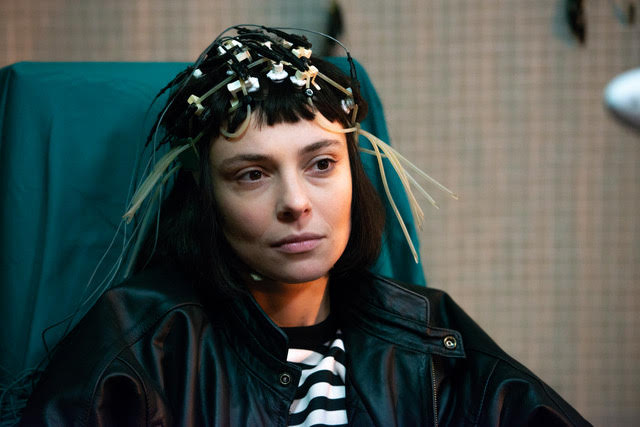Chiara Malta’s documentary “Armando E La Politica” premiered as the opening night film at Turin Film Festival and aired on ZDF and Arte. She has written and directed many shorts, mixing fiction, animation, and documentary, including “L’Isle,” “J’Attends Une Femme,” and “L’Amour À Trois.”
“Simple Women” will premiere at the 2019 Toronto International Film Festival on September 5.
W&H: Describe the film for us in your own words.
CM: It is the story of a vision. The story of a complex relationship between a director and an actress, the trajectory of a woman who finds herself behind the idol of her adolescence.
W&H: What drew you to this story?
CM: I wanted to work with actress Elina Lowensohn, an icon of American underground cinema in the ’90s. Lowensohn, though, is Romanian. I had never been in Romania, but I had a very live memory of [Romanian politician and dicatator] Nicolae Ceaușescu’s execution on TV in 1989. Two images generated an unlikely short-circuit: Ceaușescu’s execution on TV and Lowensohn having an epileptic crisis in Hal Hatley’s “Simple Men.” Such a short-circuit was the beginning of a reflection on idols and their images, on truth and lie, on the fabrication of an idol.
W&H: What do you want people to think about when they are leaving the theater?
CM: That the truth is always subjective. I hope they think about it, smiling cheerfully.
W&H: What was the biggest challenge in making the film?
CM: Framing ironically the reality’s layers. Making people think while amusing them. Creating a sense of vertigo without losing the spectator on the way.
W&H: How did you get your film funded? Share some insights into how you got the film made.
CM: Thanks to the courage of my producers, Marta Donzelli and Gregorio Paonessa in Italy and Ada Solomon in Romania. The film’s financing process wasn’t easy. It was a long journey because it is not a film laying on a traditional narration and it is a first film.
It was important to defend an unusual structure and a vision. It was not a film I could shoot by myself with a camera “guerrilla style.” Time and perseverance were key for the film’s financing.
W&H: What inspired you to become a filmmaker?
CM: The films I saw and my desire to lengthen childhood.
W&H: What’s the best and worst advice you’ve received?
CM: The best? Don’t take sleeping pills while you shoot. The worst: Do take sleeping pills while you shoot.
W&H: What advice do you have for other female directors?
CM: In order to pursue this job, it is necessary to be stubborn. But this is advice I would give to my male colleagues, too.
W&H: Name your favorite woman director.
CM: Agnès Varda, for her freedom in cinematographic writing. There are no prohibitions in her cinema. Larisa Shepitko
for her infinite compassion, because she gazes at her characters like a big mother.
W&H: What differences have you noticed in the industry since the #MeToo and #TimesUp movements launched?
CM: I’m just entering the industry. Let’s see.







